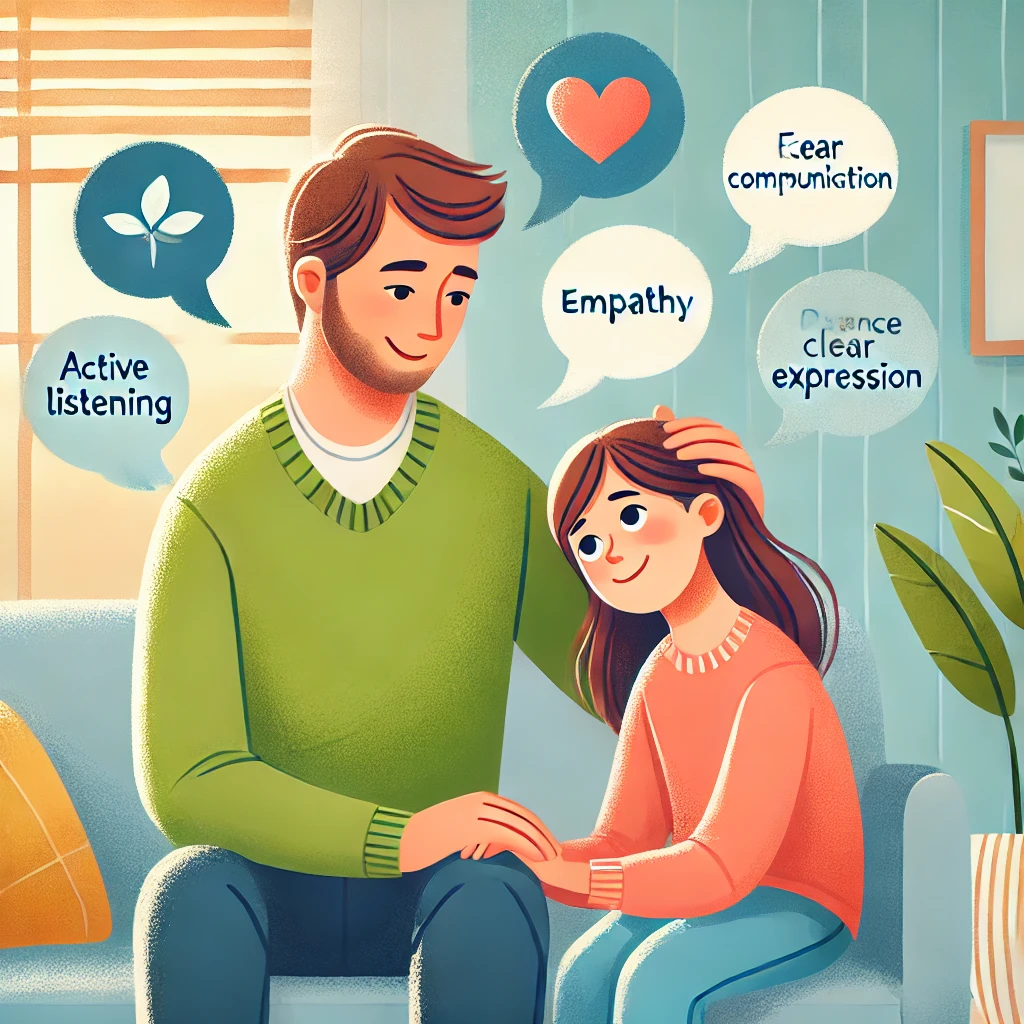
5 Essential Communication Skills Every Parent Should Master
Because raising kids isn’t just about rules—it’s about relationships.
Why Communication is the Heart of Parenting
Ever felt like your words just bounce off your kids like rubber bullets? You're not alone. Communication in parenting isn't just about talking—it's about truly connecting. Mastering communication skills can turn daily battles into bonding moments. Let’s dive into the essential skills that every parent should have in their toolbox.
1. Active Listening: More Than Just Nodding
What is Active Listening?
Active listening is the secret sauce to making kids feel heard. It’s not just waiting for your turn to speak—it’s fully engaging with your child’s thoughts and emotions.
How to Be an Active Listener
- Make eye contact – Ditch the phone and focus.
- Echo their words – Repeat what they say to show you understand.
- Validate their feelings – "I see you're upset. That makes sense."
- Ask open-ended questions – Get them talking beyond "yes" or "no."
2. The Art of Clear and Calm Speech
Why Clarity Matters
Kid brains are like sponges—but sponges that sometimes only absorb what they want. If your instructions sound like a puzzle, expect confusion.
How to Speak Effectively to Kids
- Be concise – Less is more.
- Use a calm tone – Yelling creates walls, not bridges.
- Give simple choices – “Do you want to brush your teeth before or after the story?”
- Avoid vague language – Instead of “Behave,” try “Keep your hands to yourself.”
3. Non-Verbal Communication: When Actions Speak Louder
Did you know that 70% of communication is non-verbal? Your child reads your body language before your words even land.
How to Use Body Language Positively
- Smile often – Encourages openness.
- Kneel to their level – Shows you’re engaged.
- Use open gestures – Crossed arms = closed mind.
4. Teaching Emotional Intelligence Through Communication
Why Emotional IQ is Critical
Helping kids name and understand emotions builds resilience. It’s like giving them a map to navigate their feelings.
How to Teach Emotional Intelligence
- Name emotions – “Looks like you’re feeling frustrated.”
- Share your own feelings – “I’m feeling a bit overwhelmed right now.”
- Encourage expression – Journaling, drawing, or storytelling can help.
5. Conflict Resolution: The Key to Lasting Trust
Turning Arguments into Learning Moments
Disagreements are inevitable, but how you handle them sets the tone for future conflicts.
How to Handle Disputes Effectively
- Stay calm – Kids mirror your emotions.
- Listen first – Let them speak before you jump in.
- Find solutions together – “What can we do to fix this?”
Final Thoughts: Communication is a Superpower
Parenting isn’t about being perfect—it’s about progress. Small changes in how we communicate can transform our relationships with our kids. So, start listening, speak with clarity, and embrace those tough conversations with love and patience.
FAQs
1. How can I encourage my child to express their emotions?
Encourage open conversations, use books or storytelling, and validate their feelings instead of dismissing them.
2. What are the best apps for helping kids with homework?
Some top apps include Khan Academy Kids, Photomath, and Duolingo for language learning.
3. How do I manage screen time effectively?
Set clear boundaries, create screen-free zones, and encourage alternative activities like outdoor play.
4. How can I balance work and parenting?
Prioritize quality time over quantity, use schedules, and communicate with your employer about flexible options.
5. What are affordable ways to create fun learning activities at home?
Use DIY crafts, scavenger hunts, and everyday household items for interactive learning.